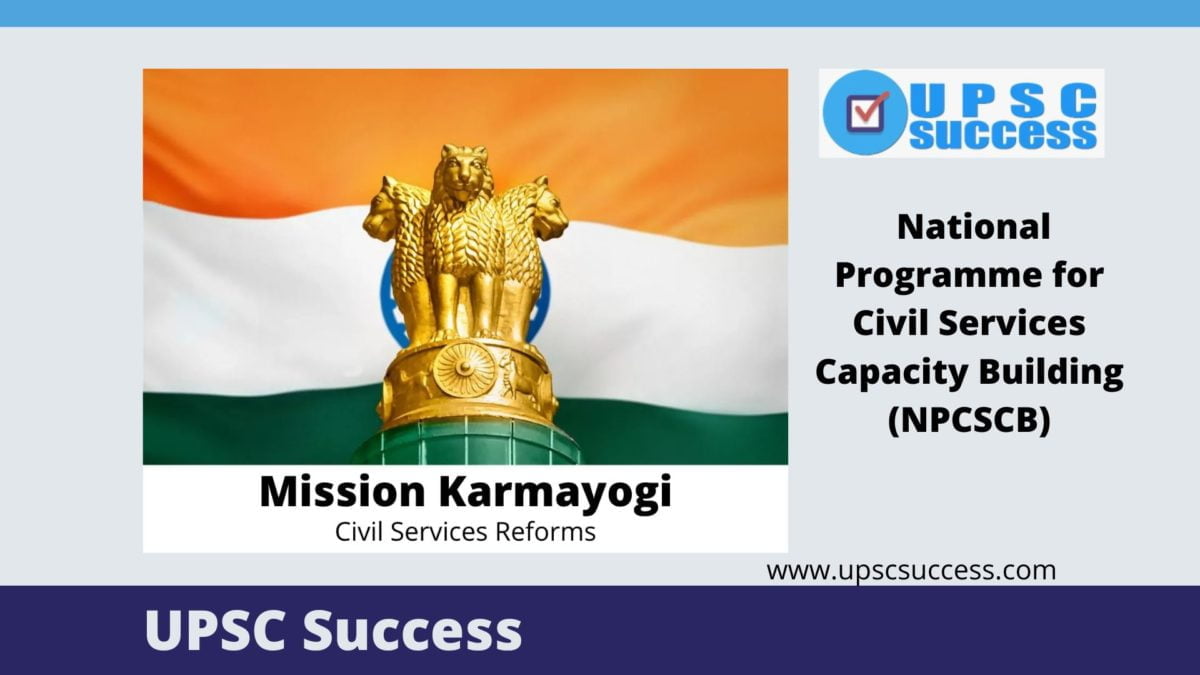On 2nd September 2020, the Union Cabinet gave its approval for ‘Mission Karmayogi’ – the National Programme for Civil Services Capacity Building (NPCSCB).
It is meant to be a comprehensive post-recruitment reform of the Centre’s human resource development.
Need for introducing the Mission
As the Indian economy grows, it will get more complex to govern; the governance capacities will have to be enhanced proportionately which this reform undertakes.
There is a need to develop domain knowledge besides administrative capacity in the bureaucracy.
At present bureaucracy is facing challenges like-Rule Orientation, Political Interference, Inefficiency with promotions, and Conflicts between generalists and specialists.
There has been needing to change the status quo of civil services and bring about the long-pending reforms in civil services.
Aim and Objective of the Programme
It is aimed at building a future-ready civil service with the right attitude, skills and knowledge, aligned to the vision of New India.
It aims to prepare Indian civil servants for the future by making them more creative, constructive, imaginative, proactive, innovative, progressive, professional, energetic, transparent, and technology-enabled.
Comprehensive reform of the capacity building apparatus at the individual, institutional and process levels for efficient public service delivery.
Silent features of the programme
The capacity building will be delivered through iGOT Karmayogi digital platform, with content drawn from global best practices.
The scheme will cover 46 lakh, central government employees, at all levels, and involve an outlay of Rs. 510 crores over a five-year period.
The programme will support a transition from “rules-based to roles-based” Human Resource Management (HRM) so that work allocations can be done by matching an official’s competencies to the requirements of the post.
Eventually, service matters such as confirmation after the probation period, deployment, work assignments and notification of vacancies will all be integrated into the proposed framework.
Structure of Governance for the Mission
▪️The ‘Mission Karmayogi’, the National Programme for Civil Services Capacity Building (NPCSCB) will be governed by the following institutional framework:
- Prime Minister’s Public Human Resources (HR) Council:
The NPCSCB will be governed by the Prime Minister’s Public Human Resource Council, which will also include state Chief Ministers, Union Cabinet ministers, and experts. This council will approve and review civil service capacity building programmes.
- Capacity Building Commission:
It will include experts in related fields and global professionals. This commission will prepare and monitor annual capacity building plans and audit human resources available in the government.
- Special Purpose Vehicle (SPV) for owning and operating the digital assets and the technological platform for online training:
There will be a wholly-owned Special Purpose Vehicle (SPV), which will govern the iGOT-Karmayogi platform. It will be set up under Section 8 of the Companies Act, 2013.
The SPV will be a “not-for-profit” company and will own and manage iGOT-Karmayogi platform.
The SPV will create and operationalize the content, market place and manage key business services of the iGOT-Karmayogi platform, relating to content validation, independent proctored assessments and telemetry data availability.
- Coordination Unit headed by the Cabinet Secretary:
There will be a Coordination Unit, headed by the Cabinet Secretary, comprising of selected Secretaries and cadre controlling authorities.
Conclusion
The Ultimate aim of Mission Karmayogi is to ensure “Ease of Living” for the common man, “Ease of Doing Business” and Citizen-Centricity that is reducing the gap between the government and the citizens. This can only be achieved by regular and constructive involvement by the government and civil servants together.

